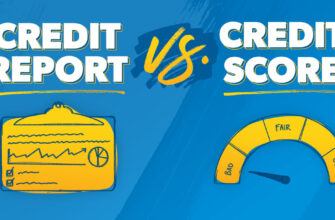Exploring Different Types of Loans: Which One Fits Your Needs?
Loans are financial tools that provide individuals with access to funds for various purposes, such as buying a home, starting a business, or financing education. However, not all loans are created equal, and understanding the different types of loans available is crucial in finding the one that best fits your needs. This article aims to explore various loan options, their features, and the circumstances in which they are most suitable.
- Personal loans are versatile loans that can be used for a wide range of purposes, such as consolidating debt, funding home improvements, or covering unexpected expenses. They are typically unsecured, meaning no collateral is required. Personal loans have fixed interest rates and fixed repayment terms, allowing borrowers to budget and plan their payments accordingly.
- Mortgage loans are specifically designed for purchasing real estate properties. They are secured loans, with the property serving as collateral. Mortgage loans have longer repayment terms, usually spanning 15 to 30 years, and lower interest rates compared to other loan types. These loans are ideal for individuals looking to buy a home or invest in real estate.
-
Auto loans are used to finance the purchase of a vehicle. Like mortgage loans, they are secured by the purchased asset, which in this case is the vehicle itself. Auto loans typically have fixed interest rates and repayment terms ranging from two to seven years. They are suitable for individuals who want to buy a car but prefer to spread the cost over time.
- Student loans are specifically designed to help finance education expenses, such as tuition fees, books, and living expenses. They can be issued by the government or private lenders. Student loans often have lower interest rates and flexible repayment options, including deferred payment until after graduation. These loans are suitable for students and their parents who need financial assistance for higher education.
- Small business loans are designed to help entrepreneurs start or expand their businesses. They provide capital for various purposes, such as purchasing inventory, acquiring equipment, or covering operational expenses. Small business loans can be secured or unsecured, depending on the lender’s requirements. They often have competitive interest rates and repayment terms tailored to business needs.
-
Credit builder loans are unique loans designed to help individuals with limited or poor credit history establish or rebuild their credit scores. These loans require a deposit or savings account as collateral. The borrower makes regular payments over a predetermined period, and once the loan is fully repaid, the borrower receives the deposited amount plus interest. Credit builder loans are suitable for individuals looking to improve their creditworthiness.
- Payday loans are short-term, high-interest loans intended to cover unexpected expenses between paychecks. These loans typically have higher interest rates and fees compared to other loan types. Payday loans should be approached with caution due to their potential to trap borrowers in cycles of debt. They should only be considered as a last resort when no other options are available.
- Home equity loans allow homeowners to borrow against the equity in their homes. These loans provide a lump sum of money with a fixed interest rate and fixed repayment term. Home equity loans are suitable for individuals who need a large amount of funds for purposes such as home renovations, debt consolidation, or major expenses. However, they should be used responsibly, as defaulting on payments can result in the loss of the home.
-
A line of credit is a flexible loan arrangement that allows borrowers to access funds up to a predetermined credit limit. Borrowers can withdraw and repay funds as needed, and interest is only charged on the amount borrowed. Lines of credit can be secured or unsecured, and they offer convenience and flexibility for ongoing financial needs, such as home repairs or business expenses.
- Debt consolidation loans are used to combine multiple debts into a single loan with one monthly payment. These loans can help simplify finances and potentially reduce interest rates. Debt consolidation loans are suitable for individuals with multiple high-interest debts, such as credit cards or personal loans. However, it’s important to consider the overall cost and potential impact on credit before opting for this type of loan.

Choosing the right loan type depends on your specific financial needs and goals. Personal loans, mortgage loans, auto loans, student loans, and small business loans are some of the most common options available. Understanding the features, interest rates, repayment terms, and risks associated with each loan type is essential for making an informed decision. Consider consulting with a financial advisor or lender to determine the loan that best fits your needs and aligns with your long-term financial plans. Remember to borrow responsibly and evaluate your ability to repay the loan before taking on any debt.








